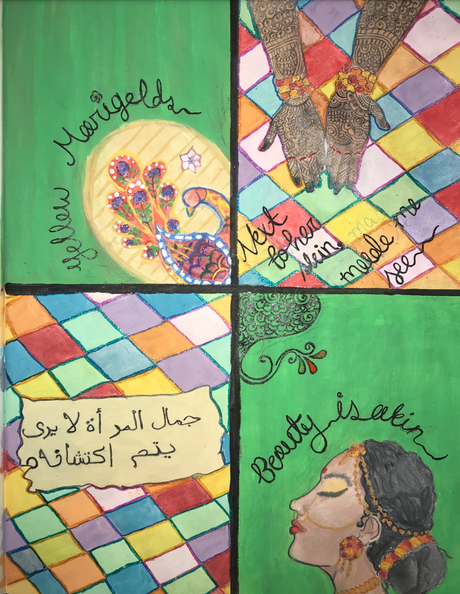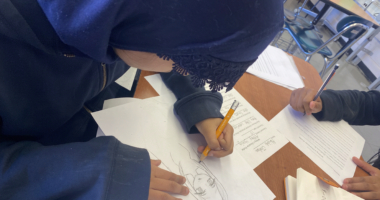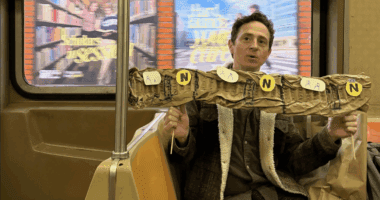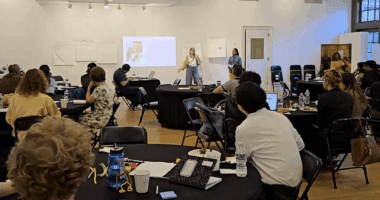Not only does Community-Word Project value the work of our Teaching Artists and administrative staff, we are fueled by the emerging voices of the young women in our classrooms across New York City. Even before the pandemic shifted our entire way of life, our students were experiencing quite a unique existence. In a digitized world where social issues are more visible than ever before, we are compelled to act urgently. There is a push toward justice that hasn’t been seen in decades, in movements largely spearheaded by women. Through the pandemic, our students’ work has mirrored that reality. At The Young Women’s Leadership School in Jamaica, Queens, students are reflecting on what it means to be a woman in their communities.


Artwork by Zara R., 9th Grade; Text Poem by Satin N., 9th Grade.
Both students at TYWLS, Queens The world around us is shaking, but shaky ground presupposes change. A coalition of Black women in arts education are taking this opportunity to gain solid ground. Centering Black Women: List of Demands is an artfully crafted snapshot of Black women’s current status in this field with a detailed account of the ways their field has failed them while uplifting others. The list acknowledges the Black ceiling, and pushes the boundaries of what empowerment can look like for Black women.
These women want more than just representation — they want to rebuild, reconcile, and reimagine. The list of demands challenges the tension between the Black woman worker and the system they are working in. It asks us to see them as multifaceted people who deserve fair compensation, mental health care, professional development, and equal opportunities. In a world where Black women are constantly forced to change and white institutions remain the same, it turns the tables.
“Our politics initially sprang from the shared belief that Black women are inherently valuable, that our liberation is a necessity not as an adjunct to somebody else’s may because of our need as human persons for autonomy.”
— Combahee River Collective Statement, 1977
This Women’s History Month, Community-Word Project invites you to join us in meditating on women who exist at the intersection of multiple oppressed identities. How can we move forward without replicating harm? How can we change the material reality of women in our community?
Read Rebuild, Reconcile, Reimagine: A List of Demands for Centering Black Women’s Leadership in Arts Education to learn more about this call to action.
CWP Development Assistant + Data Manager
March 2021



